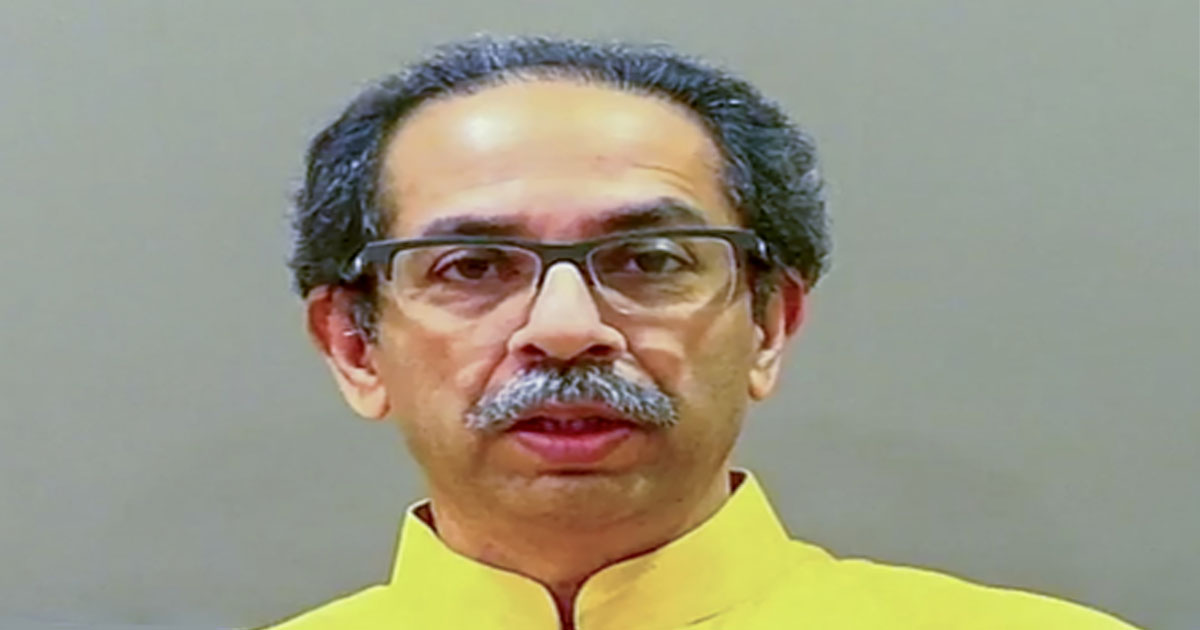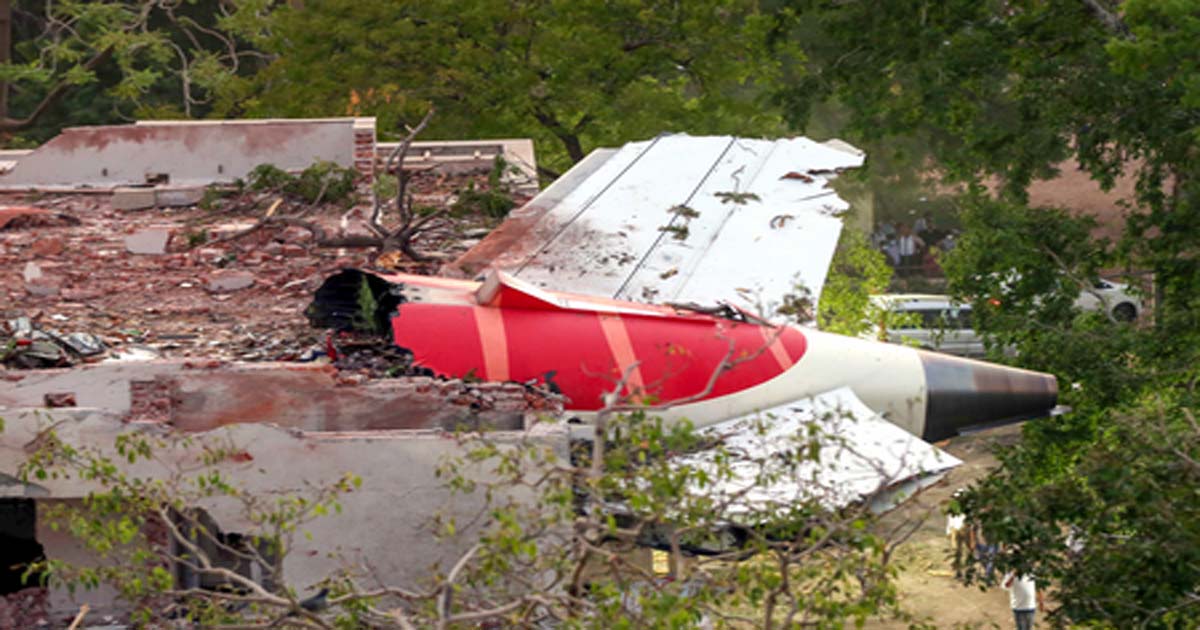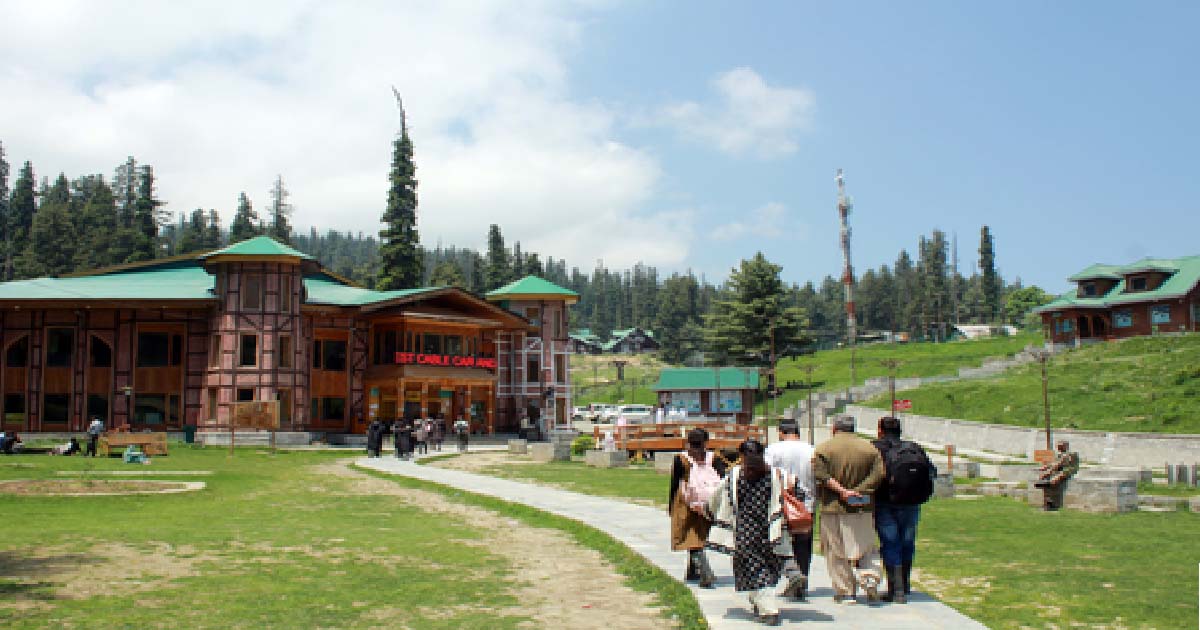National News
Number of Pakistani, Bangladeshi nationals living in India increased in BJP’s rule: Shiv Sena(UBT)’s Saamana

Mumbai, April 28: The Shiv Sena(UBT) in its mouthpiece ‘Saamana’ editorial on Monday took a swipe at the Centre over the presence of a large number of Pakistanis in the country, alleging that the number of Pakistani and Bangladeshi citizens has increased in the country during the tenure of BJP.
“Does the government have an answer to this? The Central government did launch a campaign to send back Pakistani citizens to their country, but where the BJP has been in power for years, most Pakistanis are found. So these people have definitely been sleeping for so many years. Again, where the BJP is not in power or is, campaigns are being started to harass Muslim students, fruit sellers, vegetable and cloth vendors, and small and big businessmen by declaring them as Pakistani citizens. Due to this, the original Pakistani citizens and infiltrators were left aside; a separate agenda is being implemented,” Saamana editorial said.
“How did these infiltrators make inroads when the security forces are guarding the border? The Prime Minister of the country calls himself the people’s watchman; but if Pakistani citizens, infiltrators and terrorists are crossing the border by breaking the barriers at the border and entering India, living comfortably in any state of the country and disappearing after committing attacks and massacres like Pahalgam, what exactly is the government, the country’s home department and intelligence agencies doing?” asked the Shiv Sena(UBT) in the editorial.
The editorial said that the number of Pakistani and Bangladeshi citizens in the country has increased during the BJP’s tenure. “However, after the Pahalgam attack, the Central government has started a campaign to send Pakistani citizens to Pakistan. After Union Home Minister Amit Shah himself gave such instructions to the Chief Ministers of all the states of the country, the states have swung into action. When this deadline expired on Sunday evening, a number of Pakistani citizens were deported to their country through the Attari border until the last moment. However, information is coming to light that thousands of Pakistani citizens are camped in the country even after the deadline expired. It is right that Pakistani citizens were deported out of the country, but why was there a need to wait for an attack like Pahalgam for this?” asked the Uddhav Thackeray camp in the editorial.
“Basically, why should thousands of Pakistanis come and live in India, and why should our country also allow them to come? We consider Pakistan an enemy country, so why were such a large number of Pakistani citizens allowed to enter every state of the country legally and illegally? Well, how many of these Pakistani citizens have visas and other valid documents and how many people have illegally infiltrated and are living in India? This is also a subject of research. Among the thousands of Pakistanis living in India, how many Hindus and how many Muslims are from Sindh province should also be carefully verified,” said the editorial.
The editorial further said that there were 5,023 Pakistani citizens living in 48 cities in Maharashtra. More than half of them, 2458 Pakistanis, were found in Nagpur city alone, which is the city where the state’s Chief Minister and the headquarters of the Rashtriya Swayamsevak Sangh (RSS) are located. Therefore, if there are 2,500 Pakistanis living in Nagpur and the police administration does not have any information about them, then it must be said that the security of Maharashtra as well as the country is at risk.
“More than a thousand Pakistani citizens lived in the Deputy Chief Minister’s city of Thane, and 33 of them are missing. Pakistani citizens have spread their presence in a total of 48 cities of the state, and they are living here after their visas have expired or without valid documents. Isn’t this dangerous for the security of the country? If more than 5,030 in Maharashtra, 30,000 in Rajasthan, 2,000 in Chhattisgarh, 228 in Madhya Pradesh and 5,000 in Delhi, the capital of the country itself, are living unhindered, then it is a big game with the security of the country. Basically, how can thousands of people from an enemy country like Pakistan illegally go to every corner of India? Where did they come from? How did the government remember these thousands of Pakistani citizens living in India only after the Pahalgam attack? Does the government have an answer to this?” asked the Shiv Sena(UBT) in the editorial.
“There is no way to know how many of these Pakistanis returned by the end of the April 27 deadline and how many are still in the country. If we take the example of Maharashtra alone, there were as many as 5,023 Pakistanis living in our state. Although many of them have now been deported to Pakistan, reports have been published that 107 Pakistani citizens living in Maharashtra are missing. The state’s Minister of State for Home, Yogesh Kadam, himself said that the police searched for these 107 Pakistani citizens a lot, but they were not found, so we have to believe him. However, his statement has been contradicted by the Chief Minister, who is in charge of the Home Department. The CM has claimed that not a single Pakistani is missing. However, the Minister of State for Home and the Deputy Chief Minister Eknath Shinde are claiming that 107 Pakistanis are missing, while CM Fadnavis is insisting that there is no such thing. If there is no consensus within the government on such a sensitive matter, how can it work?” asked the Shiv Sena UBT in the editorial.
“If the Chief Minister, Deputy Chief Minister and ministers are giving such contradictory information, who should the public trust? questioned the editorial.
National News
241 dead, one survivor as Air India Dreamliner crashes after takeoff from Ahmedabad: Air India

New Delhi, June 13: In what is being described as one of the worst aviation disasters in Indian history, an Air India Boeing 787-8 Dreamliner carrying 242 people crashed shortly after takeoff from Ahmedabad airport.
The aircraft, operating as Flight AI-171 from Ahmedabad to London Gatwick, plunged into a residential complex near BJ Medical College, killing 241 people on board.
The ill-fated flight had 230 passengers, 10 cabin crew, and two pilots. According to officials, only one person, a British national of Indian origin seated in 11A, survived the crash and is currently undergoing treatment at a local hospital.
The aircraft took off from Sardar Vallabhbhai Patel International Airport at 1.38 p.m. (IST) on Thursday before losing control moments later and crashing into a densely populated area, igniting a massive blaze and triggering emergency response teams across the city.
Air India confirmed the accident in an official statement on X: “UPDATE: Air India confirms that flight AI171, operating from Ahmedabad to London Gatwick on 12 June 2025, was involved in an accident. The 12-year-old Boeing 787-8 aircraft departed from Ahmedabad at 1338 hrs, carrying 230 passengers and 12 crew. The aircraft crashed shortly after take-off. We regret to inform that, of the 242 aboard, there are 241 confirmed fatalities. The sole survivor is being treated in a hospital.”
The airline also shared the nationality breakdown of passengers: 169 Indian nationals, 53 British, seven Portuguese, and one Canadian.
“Air India offers its deepest condolences to the families of the deceased. Our efforts now are focused entirely on the needs of all those affected, their families and loved ones. A team of caregivers from Air India is now in Ahmedabad to provide additional support,” the statement added.
The national carrier has pledged full cooperation with authorities investigating the cause of the crash and has established dedicated helplines for families seeking information.
Domestic callers can reach the support team at 1800 5691 444, while international callers are advised to dial +91 8062779200.
Regular updates will be provided through Air India’s official website and its X handle.
National News
Plastic nurdle spill from sunken cargo ship reaches TN’s Dhanushkodi sanctuary, raising alarm

Chennai, June 10: A plastic nurdle spill from the sunken cargo ship MSC ELSA 3 has spread into the newly declared Dhanushkodi Greater Flamingo Sanctuary in Ramanathapuram district, threatening one of India’s most fragile coastal ecosystems.
The MSC ELSA 3, a Liberian-flagged vessel, sank off the Kochi coast a few weeks ago while carrying 640 containers, including 13 with hazardous materials, 12 with calcium carbide, 367 tonnes of furnace oil, and 84 tonnes of diesel.
The ship’s cargo manifest remains undisclosed, fuelling speculation about the full extent of environmental risk.
Dhanushkodi Sanctuary, located within the Gulf of Mannar Biosphere Reserve, supports 128 species of birds — including Greater and Lesser Flamingos — and is home to sea turtles, crustaceans, molluscs, and fish. Its dunes, marshes, and seagrass beds form part of the Central Asian Flyway for migratory birds.
The nurdles — tiny plastic pellets used in industrial manufacturing — resemble fish eggs and can be deadly to marine life. When ingested, they cause internal blockages, starvation, and often death. They also absorb toxins, entering the food chain and posing long-term health hazards.
About 80 bags, each weighing 25 kilograms, have reportedly washed ashore along a 12-km coastal stretch. Affected sites include the Dhanushkodi old church, Irattaithalai, Mugandharayan Chathiram, Gothanda Ramar temple, and Patchappatti village.
Carried by ocean currents from the Thiruvananthapuram-Kanniyakumari coast, the spill now threatens the adjacent Gulf of Mannar Marine National Park, home to vital coral reefs and seagrass beds.
Experts warn these habitats could be smothered by plastic debris, blocking sunlight and disrupting photosynthesis.
Ramanathapuram District Collector Simranjeet Singh Kahlon said, “We’ve identified between 15 and 30 nurdle bags along the coast. A special team has been deployed for cleanup, and additional teams are monitoring for further debris.”
He urged the public not to panic, stating that swift action was underway.
The disaster evokes memories of the 2021 X-Press Pearl incident in Sri Lanka, where 1,680 tonnes of nurdles led to mass marine deaths and crippled fisheries.
Studies showed severe impacts on plankton and larval life forms, threatening entire food chains.
Cleanup efforts in Ramanathapuram face challenges due to the nurdles’ buoyancy and small size, worsened by monsoon waves that break them into microplastics.
With the 61-day annual fishing ban nearing its end, fishermen fear reduced fish catches and consumer hesitancy could harm their livelihoods if the spill worsens.
Environmentalists are calling for urgent intervention, cargo transparency, and long-term containment measures to prevent irreversible damage to one of India’s most critical marine ecosystems.
National News
Eight Punjab and Haryana HC judges take lead to boost Kashmir tourism post Pahalgam terror attack

Srinagar, June 9: To give a boost to Kashmir tourism post Pahalgam terror attack, eight judges of the Punjab and Haryana High Court are visiting the valley along with their families.
The visit of the legal personalities along with their families carries a powerful message for the revival of tourism in Kashmir, which got shattered after the Pahalgam terror attack.
On April 22, Pakistan-backed terrorists of Lashkar-e-Kashmir (LeT) killed 26 civilians, including 25 tourists and a local pony owner.
The pony owner sacrificed his life while trying to protect the tourists from the bullets of the terrorists.
The terror attack caused outrage in the entire country, and to avenge the killings of innocent civilians, the Indian Armed Forces carried out airstrikes against terror infrastructure in Pakistan under Operation Sindoor.
In retaliation for India’s attack on terrorist infrastructure, Pakistan resorted to heavy mortar shelling on civilian facilities in Poonch, Rajouri, Baramulla, Kupwara and Bandipora districts.
Eighteen civilians were killed in Pakistan shelling, 13 of them in Poonch district, in addition to the destruction of scores of homes, shops, a temple, a mosque, a church and a Gurudwara.
The itinerary of the visiting high court judges includes visits to the Mughal Gardens of Nishat and Shalimar, Shikara rides on the Dal Lake, a visit to the historic Pari Mahal and buying a few handicrafts at the local market.
There could be no better omen for the revival of tourism in Kashmir than the decision of the honourable justices of the High Court to come here along with their families.
Coinciding with the visit of these dignitaries, local tour and travel operators and hotel owners are reporting a gradual rise in the tourist bookings that had virtually stopped after the Pahalgam terror attack.
Tour and travel operators and others connected with the tourist industry have expressed hope that the visit by the most respected legal dignitaries, like the high court judges, will restore confidence among visitors, both domestic and foreign, that Kashmir is a safe tourist destination.
-

 Crime3 years ago
Crime3 years agoClass 10 student jumps to death in Jaipur
-

 Maharashtra9 months ago
Maharashtra9 months agoMumbai Local Train Update: Central Railway’s New Timetable Comes Into Effect; Check Full List Of Revised Timings & Stations
-

 Maharashtra9 months ago
Maharashtra9 months agoMumbai To Go Toll-Free Tonight! Maharashtra Govt Announces Complete Toll Waiver For Light Motor Vehicles At All 5 Entry Points Of City
-

 Maharashtra9 months ago
Maharashtra9 months agoFalse photo of Imtiaz Jaleel’s rally, exposing the fooling conspiracy
-

 Crime9 months ago
Crime9 months agoBaba Siddique Murder: Mumbai Police Unable To Get Lawrence Bishnoi Custody Due To Home Ministry Order, Says Report
-

 National News9 months ago
National News9 months agoMinistry of Railways rolls out Special Drive 4.0 with focus on digitisation, cleanliness, inclusiveness and grievance redressal
-

 Maharashtra8 months ago
Maharashtra8 months agoMaharashtra Elections 2024: Mumbai Metro & BEST Services Extended Till Midnight On Voting Day
-

 National News9 months ago
National News9 months agoJ&K: 4 Jawans Killed, 28 Injured After Bus Carrying BSF Personnel For Poll Duty Falls Into Gorge In Budgam; Terrifying Visuals Surface












